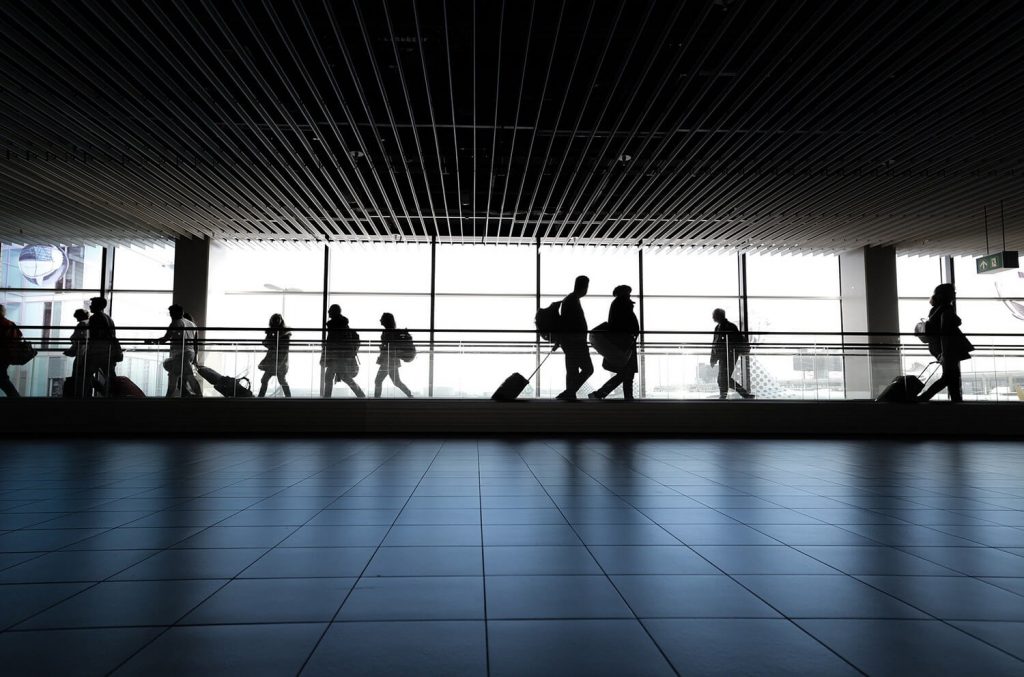Airlines demand more COVID-19 screening tests in airports
 December 15 2020
December 15 2020
For the revival of the global airline industry and to limit the spread of COVID-19, many airports are now offering their passengers screening tests. In most cases, screening tests are offered to passengers on a voluntary basis, but France has been more rigid about this initiative. Since November 7, 2020, all passengers at Paris-Charles de Gaulle (CDG) or Orly (ORY) airports must be tested. “Travelers will be tested on arrival and will receive their result within an average of 10 minutes, unless they have had a PCR test within 72 hours of their departure,” said the French Minister of Ecological Transition, Mrs. Barbara Pompili, adding that “the tests are already required before boarding in some countries.” 1
The American airline United Airlines has followed suit. Since October 15, 2020, United Airlines has been testing its passengers who take the San Francisco–Hawaii flight, to limit the spread of the virus on the islands. A drive-through service is also available outside SFO Airport for all passengers who wish to be tested on a voluntary basis. To date, 58 airlines have called for a harmonized global screening process to facilitate the management and accessibility of international airports. 2
Since September 3rd, Toronto Airport (YYZ) in Canada has been running a pilot screening project. The test involves voluntary self-sampling by passengers, to study the effectiveness of the approach for potential implementation in other airports in the country. However, the test does not suspend the mandatory quarantine for returning Canadian travelers.
Another pilot project is taking place jointly at Calgary Airport (YYC). Launched on November 2nd, this 26-week pilot project is reducing quarantine time. Supported and approved by Jason Kenney’s provincial government, testing, which is offered on a voluntary basis, allows airport travelers who test negative to leave their quarantine location, provided they are tested a second time within six or seven days of their arrival. However, they cannot leave their province during the 14 days following their arrival in the country.
A similar plan is looming on the horizon for Montreal-Trudeau Airport (YUL). Montreal’s international airport is already in discussions to reach an agreement with laboratories to implement effective screening measures. However, since it concerns a public health issue, governments also need to cooperate and agree to set up this initiative. The question came up during the RELAUNCH MTL virtual forum held by the Chamber of Commerce of Metropolitan Montreal last November 20, 2020. The Vice-President of Public Affairs of Montreal’s airports, Mr. Martin Massé, declared: “For us, testing is definitely a stopgap between now and the vaccine. There are all kinds of reasons why the airline industry cannot operate on the flick of an “on/off” switch. We need to realize that this will be a gradual recovery, considering pilot training, aircraft maintenance, etc. However, the implementation of measures such as screening tests would help to restore the confidence of passengers, to prepare airplanes which are currently out of service, and to train crew to manage and carry out the tests, but to answer the question, yes, Montreal’s Airport is ready to move forward with this avenue!”
For the moment, only one health control checkpoint has been established at the entrance of the Montreal-Trudeau airport. Passengers must adhere to the following restrictions: wear a mask, wash their hands, and accept temperature measurement with a thermal imager; otherwise, they may be barred from travel.
Despite the current recommendations of the Legault provincial government to Québec residents to avoid gathering and traveling as much as possible, many will still travel to visit their loved ones during the holiday season. It seems like a testing centre should be set up as quickly as possible to limit the spread of the virus and ensure public health security during this busy period, even if airports promise to be less crowded than usual this year.

